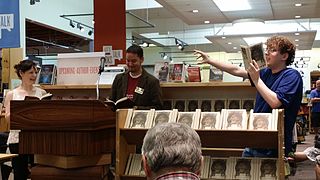A Quote by Thomas Carlyle
If I say that Shakespeare is the greatest of intellects, I have said all concerning him. But there is more in Shakespeare's intellect than we have yet seen. It is what I call an unconscious intellect; there is more virtue in it that he himself is aware of.
Quote Topics
Related Quotes
I think American actors are much more intimidated by Shakespeare. I actually want to do this Shakespeare play in New York, but I think it's interesting that there's this gaping hole in the repertoire in the American theater, which is Shakespeare. It's hardly ever done, compared to how often it's done in other companies, not just Britain. Someone from the Roundabout Theater Company - I said, "You never do Shakespeare." And he said, "Yes, we're not very good at it." And I thought, "What a terrible thing to say.".
I had been in a Shakespeare company for three years and done a lot of Shakespeare. That was fun. That was interesting. It was a lot of work - anything other than Shakespeare was less work. I had a lot of interesting roles, but I don't point to them and say, "That was more interesting than that," because I don't know what the criteria are.
When I was doing Shakespeare and I had spent a lot of time and effort in trying to become a great Shakespearean actress. That was how I started my career, was in the theater doing Shakespeare. And my ambition was to be a great classical actress. That was what I wanted more than anything. So, I really pursued that in the first four years of my career. And it was an uphill struggle. It really was. Shakespeare's difficult and Shakespeare in a big theater is even more difficult. So, anyway, it was a struggle for me.
Coming back to America was, for me, much more of a culture shock than going to India. The people in the Indian countryside don't use their intellect like we do, they use their intuition instead, and their intuition is far more developed than in the rest of the world. Intuition is a very powerful thing, more powerful than intellect in my opinion. That's had a big impact on my work.
I won't say he [Shakespeare] 'invented' us, because journalists perpetually misunderstand me on that. I'll put it more simply: he contains us. Our ways of thinking and feeling-about ourselves, those we love, those we hate, those we realize are hopelessly 'other' to us-are more shaped by Shakespeare than they are by the experience of our own lives.
Even in the life of a Christian, faith rises and falls like the tides of an invisible sea. It's there, even when he can't see it or feel it, if he wants it to be there. You realize, I think, that it is more valuable, more mysterious, altogether more immense than anything you can learn or decide upon It will keep you free - not free to do anything you please, but free to be formed by something larger than your own intellect or the intellects around you.









































